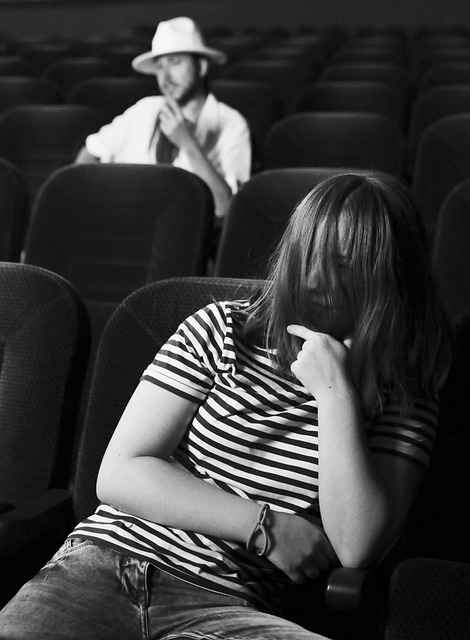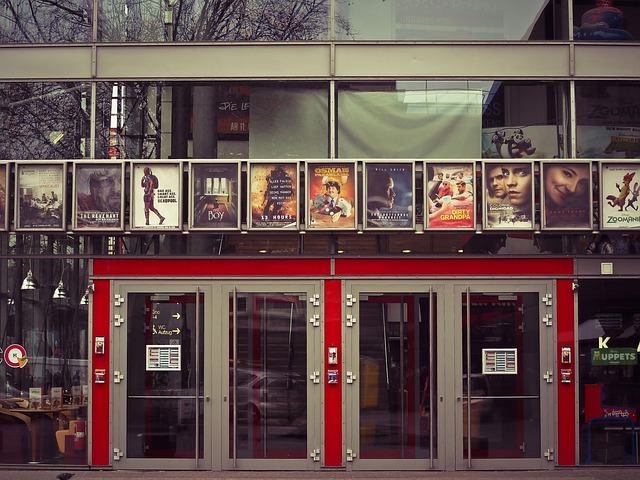Luca Guadagnino has never been one to avoid provocation, and After the Hunt shows he remains willing to stir debate. Using the framework of a sexual assault case on a college campus, the film probes the tangled and ongoing intergenerational dialogue surrounding #MeToo, pushing viewers to sit with unease rather than escape it.
The narrative opens with Maggie Price (Ayo Edebiri), a privileged Black queer student, under the guidance of Alma (Julia Roberts), a philosophy professor striving for tenure with backing from her husband Frederick (Michael Stuhlbarg). On the other side of the university is Hank (Andrew Garfield), a junior faculty member from a working-class background, also trying to secure his future in academia. When Maggie accuses Hank of misconduct, the story shifts into an exploration of faith, allegiance, and ethical power—questions refracted through the lenses of race, class, gender, and generational divide.
Read more about Weather and climate in the world
Read more aboutLatest movies blog in the world
Guadagnino’s camera frames these conflicts with sharp clarity. Alma finds herself caught in the middle: should she align with Maggie, who embodies a generation demanding unwavering solidarity, or with Hank, who admits to a mistake but insists on his lack of privilege? Each figure interprets guilt, justice, and responsibility in distinct ways, forming a fluid moral triangle that propels the story forward. What emerges is a fraught, at times exasperating, study of authority, complicity, and the unresolved paradoxes of #MeToo.
Nora Garrett’s script—she also made a small appearance in Guadagnino’s Challengers—is both tender and ambitious, but it buckles somewhat under the heaviness of its theme. It struggles to dissect the subtleties of gender and power with the sharpness of Todd Field’s Tár, leaving the final act to Stuhlbarg to provide emotional resonance and credibility. The conclusion, though gripping, reveals the screenplay’s limits in fully addressing its contentious figure. Still, Guadagnino’s direction sustains the work, his craftsmanship compensating for structural flaws and the overly mannered dialogue of the early scenes.
As always, style is unavoidable. The film pulses with music, literature, cinematic allusions—including a playful Almodóvar cameo—and, of course, Guadagnino’s signature fascination with food. Stuhlbarg acts as a stand-in for the director, his insights and judgments reflecting Guadagnino’s own. The film carries echoes of Bertolucci in its emotional and visual design, while its opening credits boldly gesture toward Woody Allen—a provocative move in a story so entwined with #MeToo’s legacy.
The performances are inconsistent but striking. Garfield lends unexpected warmth and nuance to an otherwise unrewarding part, while Roberts, skilled as always, leaves one picturing Cate Blanchett’s presence haunting the intellectual battles. Guadagnino, for his part, never hides in the background; each close-up, abrupt camera shift, and reveal feels intentional, almost instructive, underscoring his directorial hand. Still, he manages not to completely eclipse the narrative.
After the Hunt is far from flawless and may be Guadagnino’s weakest effort since his breakout, I Am Love. Much of its weakness stems from the screenplay: Garrett wavers where she should strike decisively, unable to convert the story’s immediacy into sharp, lasting commentary. Even so, under Guadagnino’s guidance, the film retains a magnetic quality. He must bear some of the blame for the uneven results—it’s difficult to grasp what compelled him to choose this material, since his passions usually blaze through, often becoming the core reason his films resonate. This latest work is untidy, provocative, and at times exasperating, yet it still affirms Guadagnino’s uncommon gift: the capacity to take risks, remain in command, and hold our focus, even when the narrative threatens to unravel.
Anything directed by Edgar Wright is worth watching since he’s one of the most talented filmmakers working today. However, I think this is easily his greatest movie. It blends the soundtrack with the narrative beautifully and contains layers of symbolism that you only pick up on after multiple viewings. The performances are outstanding, featuring top-tier actors like Jamie Foxx, Jon Hamm, and Ansel Elgort. As mentioned, the music plays a huge role in the film, whether it’s during an intense action moment or a quiet, relaxed scene. The car chases are shot in such a stylish way that they make you feel like outrunning the police in a city pursuit could be possible. With its constant surprises and clever turns, this film truly deserves all the praise it gets.
This trilogy is what first drew me into movies and the entertainment world as a whole. Andy Serkis truly reigns supreme when it comes to performance capture, and it’s evident throughout all three films. To me, every aspect of this series is phenomenal. The narrative is both captivating and deeply emotional—who would have thought we’d become so attached to a group of digital apes? Yet Caesar and his tribe won over audiences everywhere. Only Serkis could breathe new life into a dormant franchise and elevate it beyond its past success. Rise of the Planet of the Apes might be the least strong of the trilogy since it primarily sets up the virus that leads to humanity’s collapse and introduces Caesar as our central character. When Matt Reeves stepped in to direct Dawn of the Planet of the Apes, the saga reached new heights. He pulled off what many say can’t be done—crafting a sequel superior to an already outstanding film. And remarkably, he repeated that feat with War for the Planet of the Apes. It’s rare for a series to consistently improve with each installment, but this one achieved it. I believe the story concluded perfectly, and there’s no need for a fourth entry.
Anything created by Phil Lord and Chris Miller turns out to be pure brilliance. Comedy is often called the toughest genre to pull off, but these two have such sharp talent and wit that they make it seem effortless. They’ve delivered modern gems like 21 Jump Street, 22 Jump Street, Cloudy with a Chance of Meatballs, and The Lego Movie. At this point, they’ve established themselves as some of the best comedic filmmakers working today, and whenever their names are attached to a project, you can count on it being top-tier entertainment.
They were originally set to helm Solo: A Star Wars Story, but after clashing creatively with Disney, they chose to step away. Even so, their trademark energy and tone still echo throughout the film. Lord and Miller always leave a distinct creative stamp, whether they’re directing, writing, or producing. They consistently put heart and effort into making movies that work for kids while also resonating with adults. On the more mature side, their Jump Street films stand among the funniest comedies in recent memory. And with their next project, Spider-Man: Into the Spider-Verse, already being hailed as 2018’s best animated feature, their reputation for innovation and comedy genius only grows stronger.
Since the dawn of the entertainment industry, visionary directors have shaped the path for modern filmmakers—figures like Alfred Hitchcock, who crafted some of the greatest horror classics, and George Lucas, who brought to life the most iconic space saga in history. Yet, it’s clear that many of today’s directors stand among the greatest ever. Some have been honing their craft for decades, while others are fresh voices making their mark. From comedies to dramas to action films, these directors are excelling at bringing powerful stories to the screen.
If you’ve been following this blog over the past couple of months, then you already know that Ryan Coogler ranks as one of my all-time favorite filmmakers. His movies carry such a powerful artistic vision, and he excels at reimagining established characters from legendary franchises in his own unique way. Coogler’s journey began after graduating from California State University, where he created several short films during his studies. This eventually led to his debut feature, Fruitvale Station (2013), the project that launched his career. He went on to direct Creed and Marvel’s Black Panther—both widely praised as some of the standout films of recent years. With just three major releases, all of which found both critical acclaim and box office success, he has already left a remarkable mark on modern cinema. Coogler is currently set to write and direct Marvel’s Black Panther 2.
Jordan Peele was already a well-known actor and comedian before moving into directing. He first gained recognition after joining the sketch comedy show Mad TV in the early 2000s, where he met his longtime friend and collaborator Keegan-Michael Key. The two went on to create the critically acclaimed sketch series Key & Peele. After the show ended, Peele surprised audiences by announcing he would be directing a horror film. Marketed as a dark comedy with psychological horror elements, it was something rarely attempted with major success. Although the project had a relatively small cast and crew, the result was one of the most memorable horror films of recent years—2017’s Get Out. Peele’s unique creative vision stood out as something audiences hadn’t seen before. He also produced BlacKkKlansman in 2018, another film that received widespread critical praise. Through his work, Peele highlights the African-American experience in the U.S., striking a balance between humor and powerful social commentary. He is also set to produce a reboot of the classic horror anthology series The Twilight Zone.
James Wan is often regarded as the reigning master of modern horror. He launched iconic franchises like Saw and The Conjuring, which are seen as some of the most impactful horror films of recent years. From time to time, he also steps into the world of action, directing blockbusters such as Furious 7 and Aquaman. Wan carefully shapes every aspect of his projects, breathing new life into genres that many consider overdone or fading. It’s widely believed that anything Wan works on, he elevates. His newest release, Aquaman, has already shattered records, surpassing Avengers: Infinity War in advance ticket sales, and is being hailed as the strongest entry in the entire DC Extended Universe. In addition, Wan is confirmed to helm the third Conjuring film along with multiple spin-offs expanding that universe.




